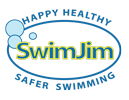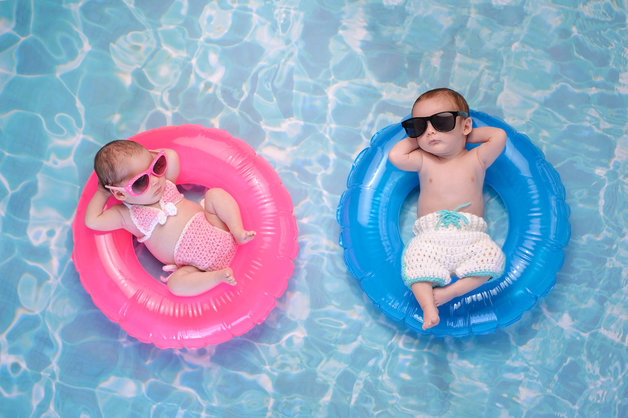As a new parent, you may be wondering when the right time is to enroll your child in swimming lessons. For those living in areas where neighborhood pools are common or where natural bodies of water exist, this question becomes increasingly important. Ensuring that your young children are comfortable with water and understand swimming techniques is an important safety precaution. It may even be life-saving! So, when can babies learn to swim? Many parents don’t realize that you can start teaching your baby basic swimming skills as young as six months old.
Taking Babies in Swimming Pools
New parents often feel stressed at the thought of taking babies in swimming pools. And for good reason! Swimming pools can be extremely dangerous if you can’t swim, and children should always have adult supervision when in the vicinity of bodies of water. However, the sooner you introduce your babies to being in the water, the more comfortable they will be with it as they continue to grow.
Each individual child will be ready to learn how to swim on their own timeline. Children should never be pressured to learn to swim before they’re ready, but as a parent, you can help them prepare by introducing them to swimming as an infant. If your child becomes comfortable being in the water with you as an infant, he or she will be much less likely to develop a fear of the water as a toddler.
When your baby is comfortable being with you in the water, it will surely make for much more enjoyable family trips to the pool or beach. It can even help improve bath time with your little one! Many infants become upset when water is splashed on their heads; however, spending time with your baby in the pool can show them that playing in the water can be fun.
Baby Swimming School
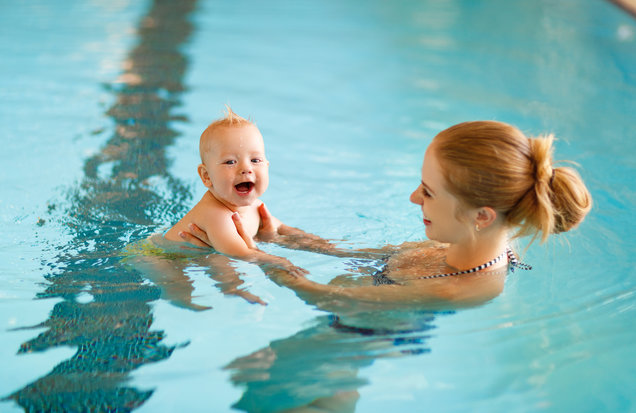
A great way to introduce your child to being in the water is by enrolling in baby swimming school classes. These types of classes involve a caregiver accompanying the baby in the water. Infant swim classes provide a guided introduction to being in the water. Your child will experience being on their back and stomach, as well as moving through the water.
It’s important to remember, however, that these types of classes are just an introduction to being in the water and do not fully teach your child to swim. An adult should always be within an arm’s length of both infants and toddlers when in the water, and children should have constant supervision when in close proximity to swimming pools and large bodies of water.
Swimming with Toddlers
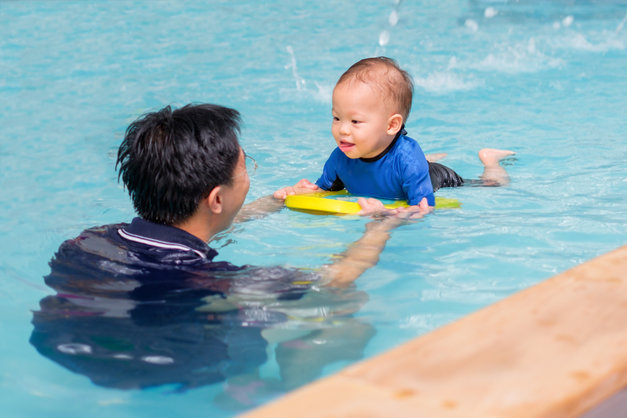
Once your child reaches the age of three or four years old, they can be enrolled in more formal swimming lessons. Participation in baby swimming school classes with a parent can ensure that the child is familiar with being in the water and ready to take classes on their own with an instructor.
In toddler swimming classes, children will learn important swimming skills such as:
- Floating on their front and back
- Controlled breathing in association with body movements
- Submersions
- Beginning arm strokes and kicking technique
SwimJim Programs
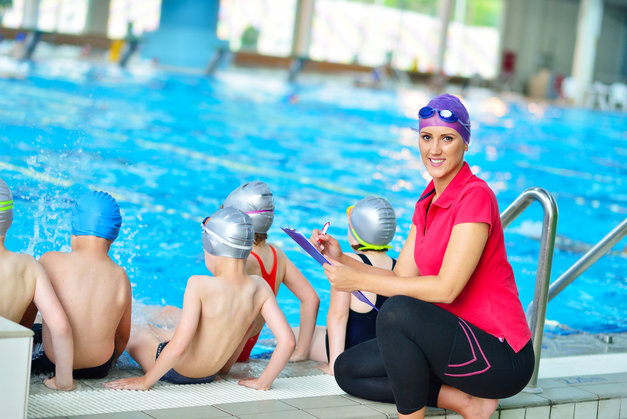
Children’s swimming classes are offered at many local pools and recreation centers. When you’re looking for the right swimming classes for your child, feel free to ask the aquatics school if you can observe a class before enrolling. You can ensure that the instructor is both experienced at teaching and focused on safety. You may also want to dip your toes in to check that the pool is sufficiently warm for your infant.
At SwimJim, we offer many different swimming lesson programs in Houston and the New York City area for infants, toddlers, children, and even adults. We have four different SwimBaby programs for parents to start getting acclimated with their babies in swimming pools. Our infant programs are for newborns that are as young as eight weeks old up to children that are three years old. All of our SwimBaby programs are designed to have a parent in the water with each baby.
Learn more about our SwimBaby programs to find the right baby swimming school for you and your child.
